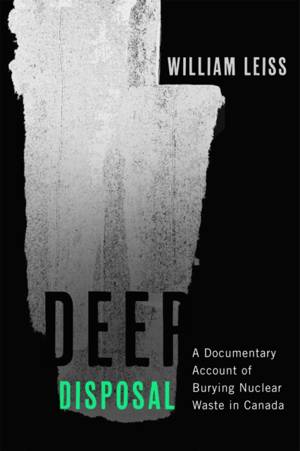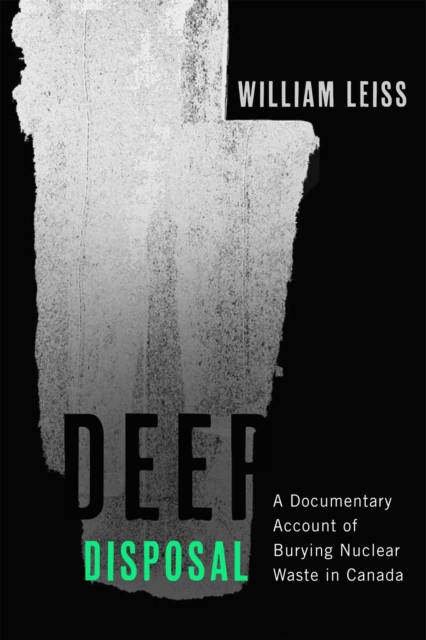
- Afhalen na 1 uur in een winkel met voorraad
- Gratis thuislevering in België vanaf € 30
- Ruim aanbod met 7 miljoen producten
- Afhalen na 1 uur in een winkel met voorraad
- Gratis thuislevering in België vanaf € 30
- Ruim aanbod met 7 miljoen producten
Zoeken
Deep Disposal
A Documentary Account of Burying Nuclear Waste in Canada
William Leiss
Paperback | Engels
€ 48,45
+ 96 punten
Omschrijving
Canada is one of many countries around the world that use nuclear reactors to generate electrical power, in part to reduce our carbon footprint. Yet this energy produces hazardous, long-lived waste that emits dangerous radioactivity for tens of thousands of years. Nuclear waste, stored temporarily for decades, must be safely disposed of so it will not pose a serious threat to human health and the environment. This means placing it in locations deep underground in granite, sedimentary rock, or clay. Canada's ideal location is somewhere on the Canadian Shield, the 2.5-billion-year-old crystalline rock that undergirds much of the country. Beginning in 2010 some twenty-two communities, most in Ontario, volunteered to host the repository. In Deep Disposal William Leiss explains the challenges that have arisen in the evaluation of potential sites over the last decade. High-level nuclear waste is the most hazardous byproduct of an energy source that is incredibly useful and increasingly in demand. Finding the ideal place to store it permanently is an urgent policy crisis facing our country. Deep Disposal reveals the nature of this crisis and how we might overcome it.
Specificaties
Betrokkenen
- Auteur(s):
- Uitgeverij:
Inhoud
- Aantal bladzijden:
- 234
- Taal:
- Engels
Eigenschappen
- Productcode (EAN):
- 9780228022824
- Verschijningsdatum:
- 10/09/2024
- Uitvoering:
- Paperback
- Formaat:
- Trade paperback (VS)
- Afmetingen:
- 147 mm x 221 mm
- Gewicht:
- 362 g

Alleen bij Standaard Boekhandel
+ 96 punten op je klantenkaart van Standaard Boekhandel
Beoordelingen
We publiceren alleen reviews die voldoen aan de voorwaarden voor reviews. Bekijk onze voorwaarden voor reviews.








